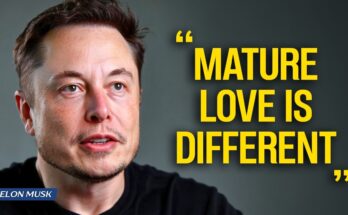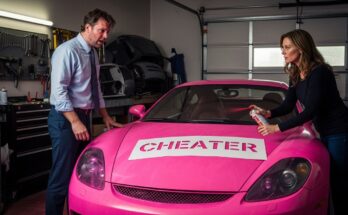I was driving home from my antique shop, headlights slicing through sheets of rain, when something caught my eye—a bundle on the roadside, barely visible, soaked and still. I pulled over, heart racing, boots sinking into mud. Inside the blanket was a newborn baby girl, shivering, silent, and blind.
I didn’t think. I just moved.
I wrapped her in my coat, pressed her to my chest, and whispered, “You’re safe now.”
I was 44, widowed, and drowning in grief. My husband Henry had died suddenly the year before, and with him went the rhythm of my life. I hadn’t danced in the kitchen since. I hadn’t played the piano. I hadn’t laughed.
But that night, holding her, something flickered.
She had a dimple on her right cheek—just like Henry. I know how it sounds. I wasn’t delusional. I was broken. But I believed in signs. In second chances. In souls that return when we need them most.
I named her Grace.
The hospital said she was healthy, despite the blindness. No one came forward. No missing child reports. No leads. So I adopted her. Legally. Emotionally. Entirely.
Grace grew up surrounded by music, warmth, and stories. She learned to read with her fingers, to navigate the world with quiet courage. She asked questions about her past, and I told her the truth gently: “You were left. But you were never unloved.”
Then, twenty years later, he showed up.
A man in his fifties, nervous, holding a folder. He said his name was Robert. That he was Grace’s biological father. That he’d made a mistake. That he wanted to reconnect.
I didn’t speak. I let him talk.
He said her mother had panicked. That they were young. That he hadn’t known she was blind. That he’d searched for her—eventually.
Grace was in college by then. Studying music. Living boldly.
I told Robert he could write her a letter. That I’d pass it along. But I wouldn’t promise more.
He asked if I hated him.
I said no.
But I didn’t forgive him either.
Because forgiveness isn’t owed. It’s earned. And Grace didn’t need closure. She needed truth.
She read his letter. She cried. She wrote back.
They met once. In a quiet café. She listened. She asked hard questions. She didn’t hug him.
Later, she told me, “I’m glad I met him. But I’m gladder you found me.”
I held her hand and whispered, “You were never lost.”
Because motherhood isn’t biology. It’s presence. It’s sacrifice. It’s love that shows up in the rain and never leaves.
Robert faded from our lives. Grace graduated with honors. And I started playing the piano again.
Not because the pain disappeared.
But because love returned.

